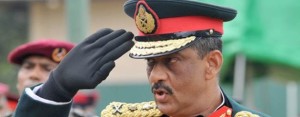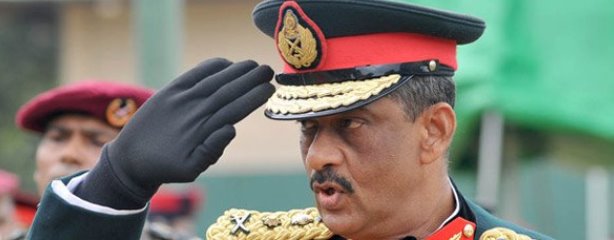 A senior general who led Sri Lanka’s army to victory over Tamil Tiger separatists says he respects minority rights and does not fear a war crimes probe as troops under his command fought a clean war.
A senior general who led Sri Lanka’s army to victory over Tamil Tiger separatists says he respects minority rights and does not fear a war crimes probe as troops under his command fought a clean war.
Sarath Fonseka, who commanded the army during the final phase of the war which ended in the Tigers’ defeat in May 2009, also called for a new political culture, saying leaders of the main communities should act more responsibly, without making provocative allegations.
He said the military is confident of facing allegations of war crimes during the final phase of the war in which thousands of civilians were killed.
“We have to answer the allegations and clear our name,” Fonseka declared at a forum organised by the Shippers’ Academy, an organisation which trains logistics professionals.
Tamil politicians and human rights groups have called for an international inquiry into the war crimes allegations which had been resisted by the government of former president Mahinda Rajapaksa.
The United Nations Human Rights Council was to present a report on the war crimes charges in March.
But it agreed to put it off till September when Sri Lanka’s new government, formed after the ouster of the Rajapaksa regime in the January 8 presidential poll, promised a more robust domestic inquiry.
Fonseka, who quit the army after the war to form his own political party and is set to enter parliament, said the military needed “credible evidence” to investigate allegations of war crimes.
“If our hands are clean there’s no reason we should try to avoid any complaints against us,” he said.
“I am confident we did not commit war crimes. We did not violate basic humanitarian law. We stuck to the legal aspects (of war fighting). We ensured soldiers maintained discipline.
“We fought the war to protect civilians, to protect property. We were not crazy to go all over killing civilians. So we have nothing to worry about.”
Fonseka also said the rights of minority Tamils to express their political aspirations for a separate state in the north and east must be respected.
“Tamils have every right to think how nice it would be to have their own country. In a democratic country if someone thinks that way we can’t eliminate them the way we eliminated terrorists. We can’t intimidate and terrorise people and try to change their thinking.”
He said it was important to create conditions for minority Tamils to have confidence in the Sri Lankan state.
“The only way is – the Sinhalese being the majority community – to do whatever is reasonable to ensure minorities also live without mistrust and suspicion and they don’t have feelings of insecurity. We have to create that environment in the country and do it sincerely with commitment.”
He said some Sinhalese political leader had tried to take political advantage of the ethnic problem by creating “communal disharmony”, referring to attacks on minority Muslims by extremist Buddhist groups which went unpunished under the ousted Rajapaksa regime.
“Naturally, then the minorities get scared,” Fonseka noted. “We also have to take responsibility for that. We have to be sincere.”
He said Sinhalese and Tamil political leaders in both south and north should act in a more responsible manner without trying to inflame communal feelings with provocative allegations against each other.
EconomyNext
